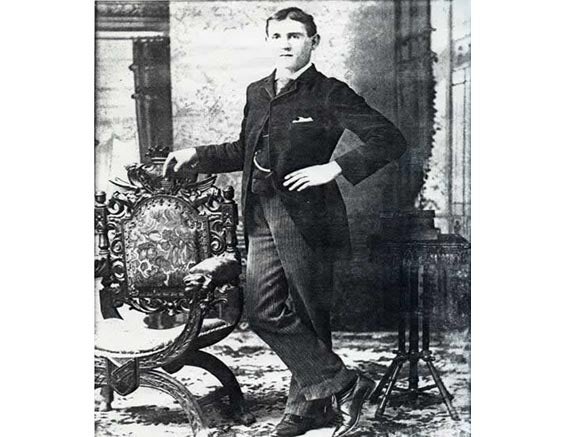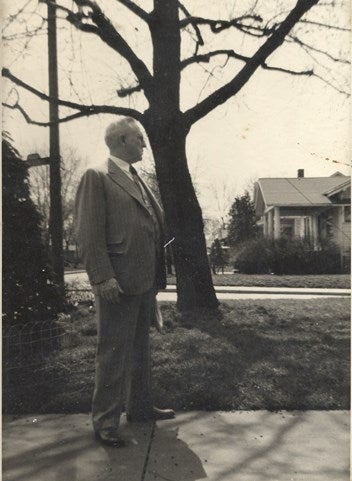News
Daniel J. Tobin: Teamster Visionary

Daniel Tobin’s story is in large part the story of the American Labor Movement during the tumultuous first half of the 20th century. For most American workers of the period, earning a living meant toiling for long hours for near slave wages, further burdened by work schedules determined at the employer’s whim. Alternatives to these poor conditions were few and a worker’s efforts to change his or her circumstance put one’s livelihood in jeopardy, with no safety net on which to fall back.
 |
|
A driver for a meat market to become one of Amercia’s most powerful men throughout the first half of the 20th century. |
Daniel Tobin arrived in America at such a time. An Irish immigrant, he, like so many others, came to the United States seeking economic opportunity lacking in his homeland. Instilled with a keen intellect and a passion for fairness, Tobin would rise from the workers’ ranks to lead the International Brotherhood of Teamsters (IBT) with a clearheaded, balanced approach that allowed the organization to thrive. Throughout his career, he would participate in many of the events that set into motion hard-won changes to improve the lives of workers. Basic rights, like the right to unionize, had to be fought for and won. Today’s workers sometimes take these rights for granted. For many labor organizers and dedicated union members, the price of the changes to come was physical safety, economic sacrifice, perseverance and the courage of their conviction.
As IBT General President for an unprecedented 45 years spanning 1907 to 1952, Tobin saw the union grow from 38,905 to 1,120,245 members, giving the Teamsters a power base unequaled by other labor organizations. With the IBT as his springboard, he would venture into national labor politics, becoming one of the most influential labor leaders of his time.
While serving as General President, he also held the positions of American Federation of Labor (AFL) Treasurer, AFL Vice President, Chairman of the Labor Division of the Democratic Party, labor consultant and ally to the administration of Franklin D. Roosevelt, plus numerous assignments as a labor representative in domestic mediation and to international conferences. The world of national labor politics, while often frustrating, held his interest. When Samuel Gompers, William Green, Sidney Hillman, John L. Lewis, Phillip Murray and other labor greats gathered in smoke-filled rooms to discuss labor’s national agenda, Daniel J. Tobin was there as a key player and shrewd proponent for what he thought was right. As one of the more moderate forces in the attempts to heal the great labor divide of his time, he helped lay the foundation for the future merger of the rival AFL and CIO organizations.
During the New Deal era, Tobin fought to maintain the labor movement in this country as a mainstream, American brand of labor which set him at odds with those he and others considered radicals. For Tobin, a student of history and economics, labor politics went beyond the U.S. shores. He kept himself informed and in touch with international issues and took advantage of opportunities to travel abroad for business and pleasure.
He was a prolific writer and an accomplished speaker. Well-read and to a great degree self-educated, he held his own with the brilliant executive minds of his time. The stands he took were often controversial and unpopular. But because of his direct approach, few people wondered about his feelings on an issue. Any views he didn’t deliver directly could be found in his monthly articles for the Teamster International, the union’s main publication at the time. He was known for being tough and tenacious, with a salty, sometimes curt personality to match. Yet he was recognized for his honesty, intelligence and sound judgment. These qualities made him “King Dan” and he used them to guide his members through political and economic minefields while many other unions floundered in ways that hurt their membership.